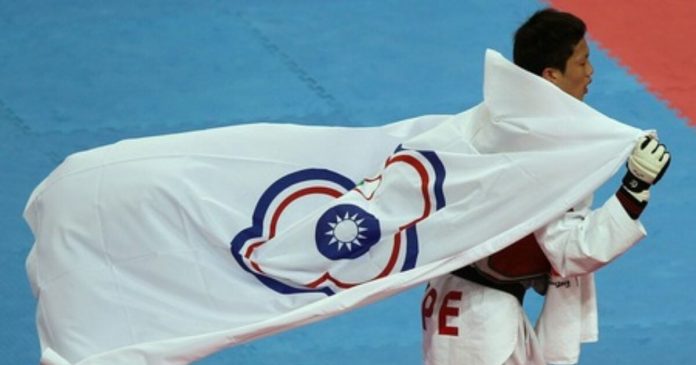
Across Taiwan, celebrations erupted as their Olympic team secured its first gold medal in the 2024 games, triumphing over the People’s Republic of China in badminton—a sport the PRC usually dominates. Unfortunately, this victory won’t be recorded as a gold medal for Taiwan but rather for “Chinese Taipei.”
Taiwan is a self-ruled democracy, with its capital in Taipei. An ally of the United States, it is located approximately 100 miles (160 kilometers) from the People’s Republic of China (PRC). In the Olympics, Taiwan is forced to compete under the name “Chinese Taipei,” a compromise that satisfies the PRC but undermines Taiwan’s sovereignty and identity. This issue exemplifies the willingness of international bodies to yield to Beijing’s will. Every time the name “Chinese Taipei” appears in the news, Beijing gains a bit more power.
Taiwan, officially the Republic of China (ROC), has had a tumultuous history with the People’s Republic of China (PRC). After the Chinese Civil War in 1949, the ROC government, led by Chiang Kai-shek, retreated to Taiwan while the PRC was established on the mainland. Since then, the PRC has not recognized Taiwan as a separate nation and insists that it is a part of China. This stance extends to international organizations, including the Olympics.
In 1971, the United Nations (UN) dropped its recognition of the ROC and instead recognized the PRC as China. In 1981, the International Olympic Committee (IOC) and Beijing reached a compromise: Taiwan would compete under the name “Chinese Taipei,” use a different flag, and play a different anthem. This arrangement was intended to allow Taiwan to participate in international sports events without offending the PRC. However, this compromise has had significant repercussions for Taiwan’s international identity and visibility.
Competing as “Chinese Taipei” strips Taiwan of its national identity on the world stage. The use of a separate flag and anthem further alienates Taiwanese athletes and citizens, who are forced to compete under a guise that negates their sovereignty. This arrangement is not just a matter of semantics; it impacts the national pride and international recognition of Taiwan.
The IOC is just one of many international organizations where China asserts its economic and political influence, demanding special treatment. A recent example that negatively impacted the US is the World Anti-Doping Agency (WADA), which ignored the fact that the PRC swim team failed their drug tests.
Despite clear evidence of misconduct, WADA has threatened to sue the United States for criticizing their work. This is how China’s influence skews international norms and standards. The WTO ruled against some of President Trump’s tariffs on Chinese imports and rejected many of his cases against China, despite clear evidence of trade cheating, subsidizing its national industries, and posing a threat to U.S. national security.
Even U.S. politicians give in to China. Nancy Pelosi told U.S. Olympic athletes in Beijing not to speak out against the Chinese Communist Party (CCP). This pattern of yielding to China extends to the United Nations, where Taiwan is denied membership, and the WHO, where Taiwan is excluded. In the WTO, Taiwan participates under the Beijing-imposed name of the Separate Customs Territory of Taiwan, Penghu, Kinmen, and Matsu.
While the U.S. does not officially recognize Taiwan’s independence, the Taiwan Relations Act obligates the U.S. to provide Taiwan with the means to defend itself from a PRC invasion.
In 2020, President Trump placed U.S. troops in Taiwan for the first time since 1979. President Biden has continued to provide weapons and military trainers to Taiwan. U.S. support for Taiwan is part of a broader strategy to maintain a free and open Indo-Pacific, with free and open navigation, as about 80% of the world’s containerized shipping passes through the region. If this were controlled by China, the PRC would be in a position to cause massive supply chain issues around the world.
Additionally, Taiwan’s geographic location is advantageous to the U.S. Having Taiwan as an ally is crucial to the U.S. in containing the PRC in the event of a war.
The IOC, along with other international organizations, must reevaluate its policies and consider the broader implications of its decisions. Allowing the Taiwanese team to compete under their own name and flag would send a strong signal to Xi Jinping that the U.S. and the rest of the world are free to make their own independent foreign policy decisions without Beijing’s permission.
It is time for every country and international body to stand up to the PRC and recognize Taiwan.
Kowtowing to China not only undermines Taiwan’s sovereignty but also encourages the PRC to make more demands beyond its shores. The PRC has threatened serious repercussions for those that recognize Taiwan, but if the G7, EU, NATO, and U.S. allies all agreed, the PRC would have little choice but to accept it or wage a world war, which would be both destructive and alienating for Beijing.
The post International Olympic Committee Kowtows to China: Why Taiwan Competes as Chinese Taipei appeared first on The Gateway Pundit.
This article may have been paraphrased or summarized for brevity. The original article may be accessed here: Read Source Article.





![President Trump Gives Barron A Shout Out At Inaugural Parade: His Unexpected Response is Pure Gold! [VIDEO] president-trump-gives-barron-a-shout-out-at-inaugural-parade:-his-unexpected-response-is-pure-gold!-[video]](https://news.lateawakening.com/wp-content/uploads/2025/01/35545-president-trump-gives-barron-a-shout-out-at-inaugural-parade-his-unexpected-response-is-pure-gold-video-100x70.jpg)



